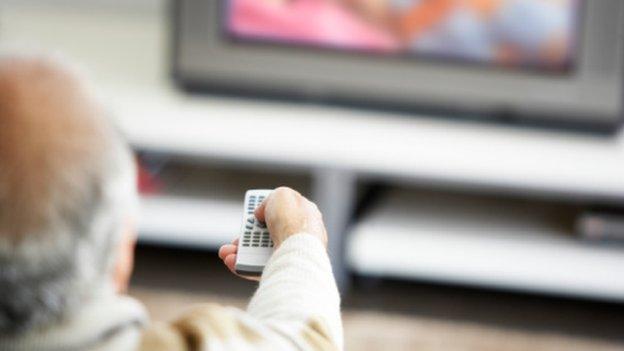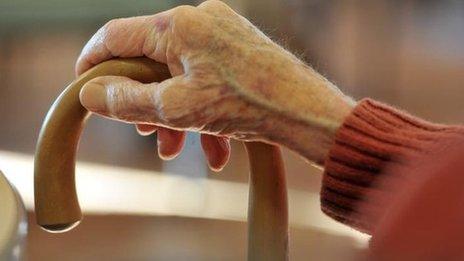Health reforms: Who pays?
- Published

The report suggests more people should pay for prescriptions
There has been much talk about how to pay for the increasing health requirements of a rising population.
Kate Barker and her colleagues on the King's Fund Commission have come up with some new ideas on where the money might come from and attempted to bring down some kites which have been flying recently.
The Barker Commission's task was to set out what a new deal for health and social care in England might look like.
They have come up with a rigorous and extensive analysis. But attention is drawn inevitably to their recommendations for raising the cash.
Barker after all is a highly regarded economist who served for a time on the Bank of England's Monetary Policy Committee.
Her fellow Commission members were not lacking in economic nous either.
So what they have to say on the economics of health care is worth listening to.
Money
The commission's reform plan for England comes with a price tag of £3bn a year in 2016 rising to £5bn by 2025 - that is costs above continuing the current system.
Barker and her colleagues felt it was not sensible to come up with a menu without prices so they have set out how they would raise the money.
They make clear what they would not do.
Charges for GP visits have been floated by some health experts and the Commission considers the case for a £5 charge, with exemptions only for those on low income, which would raise £800m per year.
That is a significant sum but the commission says there are questions marks over charges.
Would they apply to visits to other health professionals as well as GPs? Would there be a charge for email and telephone conversations?
Would a fee also have to be levied on visits to A&E to stop people switching from GP consultations?
The Barker report comes down against charges for GP visits, outpatient and A&E attendance.
The idea of charges for missed appointments is also rejected, partly because of administrative cost.
In each case, concern that patients might be deterred from seeking help was an important consideration.
Winter fuel

Stopping free TV licences for the elderly is one idea from the commission
The commission believes money can be freed up for its reforms by a shake-up of prescription charges.
Currently more than 90% of prescriptions are dispensed free because of the extensive range of exemptions.
Those who are exempted from charges tend to be the heaviest users of prescription medication.
The report says that most exemptions should be abolished but with a cap on annual costs to ensure those with high needs and low incomes are not penalised.
Even with a reduction of the prescription charge from £8.05 to £2.50, savings of £1bn a year could be made for investment in social care.
Barker argues that those who will benefit most from the proposed changes should shoulder some of the financial burden, in other words the more affluent among the elderly population.
Ending some free TV licences and winter fuel payments for pensioners is one proposal.
Another would see those working past pension age paying National Insurance contributions, though at half the standard rate.
Food for thought
Further down the line, the commission argues, there should be a one percentage point increase in employee NI for those aged over 40, the next cohort to benefit from social care reforms.
The better off across all ages would also have to pay more with a further one percentage point hike in employee NI for those earning more than £42,000 a year.
To some these will look like unpalatable choices.
A National Insurance hit on the middle aged and older members of the workforce does not sit easily with the drive to get people working longer.
The prescription reforms would hardly be popular with those currently exempt from charges.
But at a time of increasing debate about how to pay for a national health service facing intense demographic pressures, Barker and her fellow commission members have provided some interesting food for thought.
- Published4 September 2014
